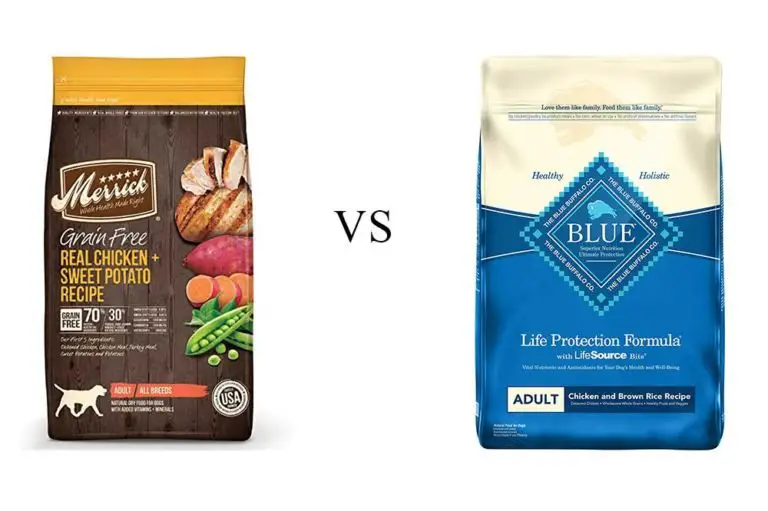Can Dogs Eat Marshmallows?
Dogs can be quite cunning when you give some treats to your children. They may stare at you helplessly or may drive around you crazily for achieving the same. Dogs would come behind you all the way wagging its tail, especially when you have something to eat in your hands. But we are not pretty sure to share certain food with dogs. Didn’t you ever think about whether it is safe to share the marshmallows with your fur friend? It is certainly ok if your child fed a marshmallow to your dog from his packet of sweets.
Dogs can eat marshmallows. One or two marshmallows don’t make much adverse effects on the health of your dog. But they are neither considered healthy for your dogs. Also, marshmallows are not recommended to be given daily or in large numbers. Therefore, it is better to keep marshmallows as occasional treats for your dogs.
This article will tell you why marshmallows aren’t a healthy snack for dogs. You can also find out how marshmallows adversely affect the health of your dogs. So, let’s move on.
What Are Marshmallows? Are Marshmallows Safe For Dogs?
Marshmallows are soft, spongy, and chewy candies available in the supermarkets. They are available in multi colors and are hence, considered as fun to eat.
If you check up on the ingredients list of marshmallows, you will find out that they are made up of just lots of sugars and chemicals. The list of its ingredients includes sugar, corn syrup, dextrose, gelatin, tetra-sodium pyrophosphate, and artificial colors.
Neither of these ingredients seems healthy to dogs, actually not even for human beings.
Sugar-free marshmallows are available in the market. They contain artificial sweeteners such as Xylitol. Xylitol is very dangerous for dogs, actually more than chocolates are. Therefore, never take a chance on the life of your fur friend by giving sugar-free marshmallows.
After all these dangers, marshmallows do some benefits for the health of dogs. Marshmallows contain some minerals which are nutritious for your canine friends. These minerals include Copper, Iron, and Selenium.
Selenium in marshmallows increases the activity of antioxidants in the dog’s body. These antioxidants effectively act against arthritis, cancers, and gastrointestinal disorders that can threaten the life of your dogs.
Marshmallows also provide more iron that increases the cell function in dogs. It increases the hemoglobin content in the blood of canines. Iron also activates and controls certain essential enzymes in the canine bodies.
The copper in the marshmallows also can help dogs to remain healthy. It is involved in the formation of hemoglobin content. Copper also serves antioxidants required for the bodies of dogs. Most of all, copper helps dogs in the absorption of iron.
However, dogs have to consume lots of marshmallows to gain the required amount of these minerals. But consuming more marshmallows also triggers the intake of calories and may end up as a threat rather than being benefited.
And of course, the drawbacks of marshmallows outweigh its benefits for dogs. So, marshmallows are definitely not a healthy snack for your canine friends.
Why Marshmallows Are Not Safe For Dogs?
As already said, marshmallows are made of lots of sugar and chemical. They are thus not a healthy choice of snack for your dogs. Excess and frequent consumption of marshmallows can be hazardous to the health of your dog.
Here are some dangers of feeding marshmallows to your canine friends in excess.
Weight Gain Or Obesity
Marshmallows really contain a lot of calories and sugar. Consumption of large numbers of marshmallows can be a reason for weight gain and may lead your dog into obese conditions. Obesity can make your dog’s life worse. It may lead to several other diseases as well.
Thus, it would be better to avoid feeding your dogs with marshmallows as much as possible. The high sugar content of marshmallows triggers the process of weight gain in dogs. Certain breeds such as beagles are very prone to obese conditions. So, think before you act. However, occasional treats of marshmallows don’t do much harm to your dogs.
High Blood Sugar Levels
We have already said that marshmallows have high sugar content. Thus, feeding your dog marshmallows can increase the blood sugar levels of the canine bodies. The higher blood sugar levels would pave a path for diabetes.
The symptoms of diabetes in dogs include excessive thirst, weight loss for no reason, urinary tract infection, lack of energy, and increased urination. Loss of eyesight may occur in severe cases of diabetes.
Sadly, your dogs can’t recover from diabetes in their lifetime if diagnosed once. Therefore, it would be better not to take a risk by feeding marshmallows and other food items rich in sugar.
Tooth Decay And Gum Diseases
The increased sugar content of marshmallows can also pave a path for tooth decay and gum diseases. Occasional sugar won’t do much harm to the teeth and gums of your dog. But, when you give regular sugar treats for your canine buddy, teeth may start decaying, and the chances for gum diseases increases.
Canine periodontitis is such a disease seen among dogs due to excess sugar intake. It occurs as calculus seeps around the gum line. Canine Periodontitis will damage the tissue around the teeth of dogs and may eventually lead to loss of teeth.
Canine gingivitis is another gum disease seen among dogs. It occurs due to inflammation of the gum. Canine gingivitis may end up in oral infections.
Stomach Upset
The consumption of large numbers of marshmallows can upset the gastrointestinal tracts of dogs. It may pave the path for diarrhea, constipation, or bloating. Dogs are not used to the excess sugar content marshmallows have and may usually end up in indigestion problems.
Excess sugar intake can also trigger the risk of pancreatitis in dogs. Pancreatitis may affect the life expectancy of dogs, if not properly diagnosed or treated. Occasional marshmallow treats are safe. Be sure not to make marshmallows a regular component in your canine friend’s diet.
Choking Hazard
Marshmallows can be a choking hazard at times. They are small-sized soft and spongy cubes that can easily get lodged in the throat of dogs. So, make sure your canine friend chew marshmallows well before swallowing.
Xylitol
Xylitol is a chemical seen in sugar-free and fat-free marshmallows. It is actually an artificial sweetener that can be very toxic for your dog’s health. Don’t ever give marshmallows containing Xylitol to your canine friends. It is deadlier than chocolates.
The symptoms of Xylitol consumption include indigestion, trembling, shaking, lethargy, and jaundice. Take your furball immediately to the veterinarian if it is found to have eaten marshmallows containing Xylitol.
Conclusion
Marshmallows are not really hazardous for dogs when given in small amounts. The problem starts once you feed marshmallows regularly or in large amounts. Excess sugar and calories in the marshmallows may trigger many health issues including obesity, oral infections, and diabetes.
However, fat-free or sugar-free marshmallows can cause some serious health problems due to the presence of the artificial sweetener called Xylitol. So, sugar-free marshmallows are never on the safer side for dogs.







